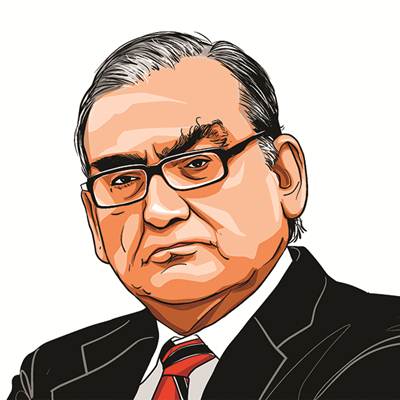Opinion Recreating Frankensteins monster
Both versions of the Lokpal bill are unworkable. If passed,it may increase corruption
Both versions of the Lokpal bill are unworkable. If passed,it may increase corruption
I have been silent through the Anna Hazare movement to create a Lokpal (Jan Lokpal) because the media,particularly the electronic media,had so hyped the issue,and generated such an emotional storm,that anyone who raised logical questions would have immediately been branded a deshdrohi or gaddar. Anna Hazare was depicted as a modern messiah,who,like Moses,had come to rescue his chosen people and lead them to a land of honey and milk.
Now that the brouhaha and hullabaloo has subsided,it is time to make a cool,dispassionate and logical assessment of Hazare and his movement. I have no doubt that Anna Hazare is an honest man,but my point is that the problems facing the country (and corruption is certainly one of them) are so massive that they can only be solved by a rational,scientific approach,not by emotional outbursts. Honesty alone is not enough.
So far as I can gather,Anna Hazare has no scientific ideas. Consider the following: His solution to alcoholism is to tie alcoholics to a pole and whip them. Is this a rational solution? Most poor people who drink liquor in this country drink cheap country liquor,not scotch. They drink to get some temporary relief from their miserable lives. To abolish alcoholism among them would be possible only by abolishing poverty,and that can be done by raising their standard of living and giving them decent lives. This is a gigantic task,and cannot be solved by flogging them in public.
Anna Hazare also demands a right to recall elected representatives. But how is that possible within the system? Supposing a law is made that a motion can be moved for the recall of an MLA or MP signed by 10,000 voters. But for getting this motion passed,there will have to be voting by all the voters in the constituency. This would mean another election. Is this feasible? An election entails a huge amount of expenditure. Can a poor country like ours have repeated elections? I think the idea is totally impractical.
Now coming to the Lokpal Bill,whether the Jan Lokpal Bill or the sarkari Lokpal Bill,it envisages overseeing the work of some 55 lakh government employees in the country (of which 13 lakhs are in the railways alone),from prime minister to peon. Surely one person cannot enquire into the lakhs of complaints which are bound to pour in. It will require thousands of Lokpals,perhaps 50,000,to do this. All of them will have to be provided salaries and other amenities,such as housing,offices and staff. And then where is the guarantee that they will not themselves become corrupt? In fact,considering the low level of morality prevailing in India,we can be fairly certain that a large number of them will become blackmailers.
The Lokpal Bill will create a parallel bureaucracy,which will turn into Frankensteins monster. Instead of curtailing corruption,in all probability,it will,at a stroke,double or triple corruption in the country. I regret to say that the implications of creating such an apparatus were not rationally thought out,and instead some people thought that all the problems of corruption will be solved by shouting Bharat mata ki jai or Inquilab zindabad from the Jantar Mantar or Ramlila ground in Delhi.
I may clarify that I am not against any kind of Lokpal. Justice Hegde did a fantastic job in exposing the corruption of the mining mafia in Karnataka. But the type of Lokpal envisaged in the Jan Lokpal bill or the government Lokpal bill are clearly impractical and unworkable.
I would therefore respectfully urge Parliament to defer consideration of the bill before it and refer the matter to a standing committee (as Lalu Prasad has suggested),where experts from various fields in the country and outside be invited to give their views. Only then can a workable Lokpal machinery can be created. Passing bills in a hurry and under pressure from some people having their own agenda will only add to the huge problems facing the country.
The writer,a former judge of the Supreme Court,is chairman of the Press Council





